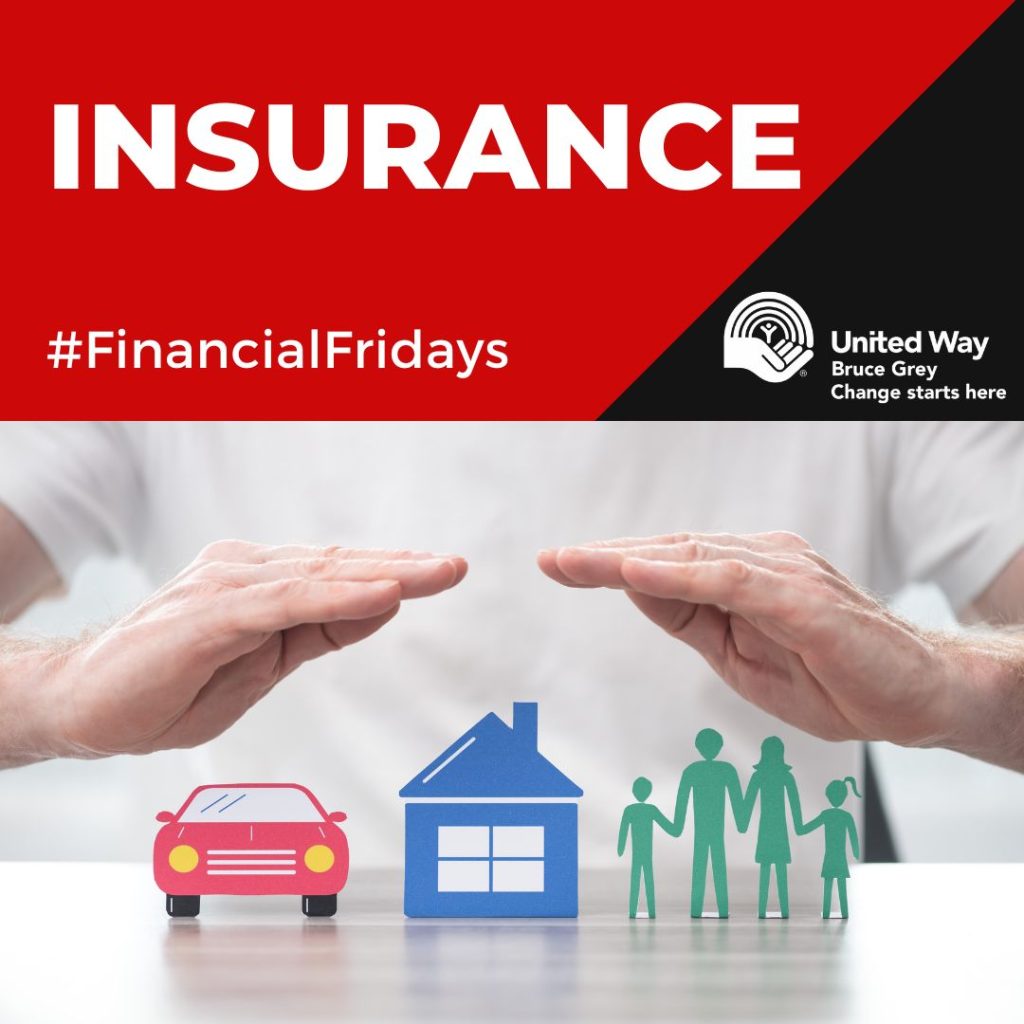#FinancialFridays: Insurance

Whether you pay into insurance privately or get insurance benefits through work, it is important to know what is covered… and when your coverage might change.
Insurance is an agreement between a person and an insurance company. The person pays the insurance company in exchange for financial protection or reimbursement of costs occurring from a specified event.
The types of insurance people have are completely individual. The most important thing is to make sure the insurance you have makes sense for you and covers the things you need it to. If they have insurance through your company, like life or death insurance, make sure you know what is included. The only way to be up to date is to read through your policies on a regular basis and decide if the types of coverage still make sense for you and your life. Set a regular date once a year to review all your insurance policies; For some people, this may be their birthday month, the start or end of the year, or a special date for them, like Summer Solstice or Pride Month. It doesn’t matter what the date is; The most important thing is to REVIEW, REVIEW, REVIEW your policies each year.
Here are some types of insurance:
Car Insurance can cover several events. Don’t assume certain things or everything is covered. It depends on the types of coverage that are included in your car insurance package. In Ontario, there are four mandatory coverages you need to drive a car: third-party liability, accident benefits, uninsured automobiles, and direct compensation for property damage. There are other coverages you can add on that are not mandatory.
Life Insurance pays a life insurance death benefit to your beneficiaries when you die. This can be used to cover burial and funeral costs as well.
Disability Insurance replaces some or all your work income if you become sick or injured.
Homeowners Insurance is mandatory if you have a mortgage in Ontario. You can include coverage for the structure of your home and detached structures on your property, your belongings, living expenses, and liability claims in your mortgage package. Even if you no longer have a mortgage, homeowners insurance is important to protect you and your largest asset, <your home>, when unexpected things happen.
Tenant Insurance covers your personal items if it is damaged by something happening in your rental unit. If there is a flood, fire, or some other disaster, your landlord is responsible for the structure, furnishings, and appliances that were included in the unit rental. Your personal belongings are not their responsibility and will not be covered by their insurance. That is what Tenant Insurance is for.
Travel Insurance covers all or some costs that can happen when you are traveling and have a medical emergency or have to unexpectedly cancel or interrupt a trip.

